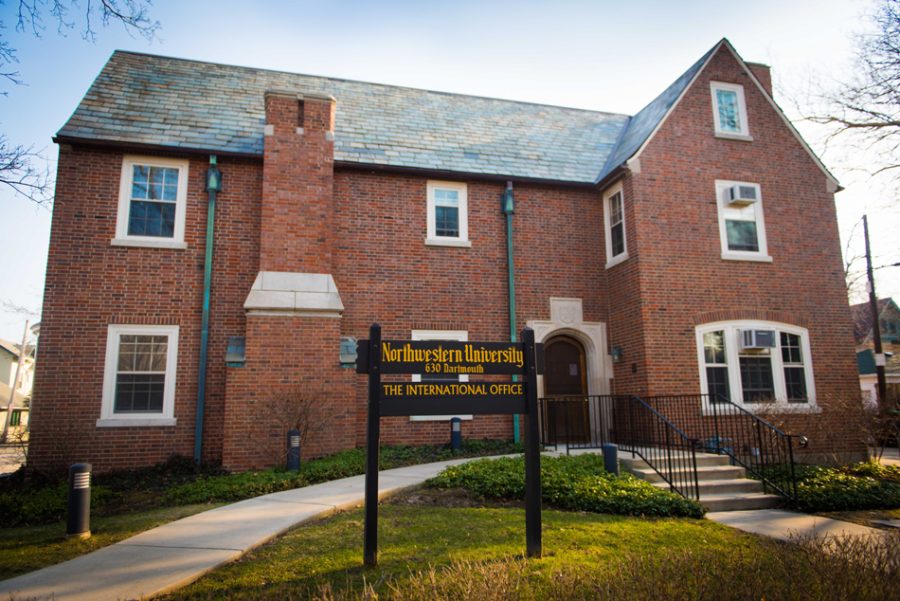The Trump administration targeted international students. Here’s how higher education has responded.
Daily file photo by Daniel Tian
The International Office, 630 Dartmouth Pl.
July 12, 2020
On July 6, the Trump administration announced international students couldn’t take a full online course load to retain their visas.
Two days later, two of the nation’s most renowned institutions — Harvard University and the Massachusetts Institute of Technology — filed a lawsuit against The Department of Homeland Security and U.S. Immigration and Customs Enforcement, seeking to bar the agencies from enforcing the guidelines.
On July 8, University President Morton Schapiro announced Northwestern had joined an amicus brief in support of the lawsuit.
“Whether or not our students are impacted directly, we will work tirelessly with our academic peers to ensure no students anywhere are affected,” Schapiro said in a University release.
By the end of the week, over 70 institutions of higher education had joined the brief or taken legal action, from small liberal arts colleges to big state schools. Higher education’s growing discontent over the rules comes as universities throughout the country weigh the degrees to which they will reopen in-person instruction this fall, creating a situation that has put some international students in a bind.
Other lawsuits, actions
Public and private colleges and universities in California, the state with the largest university systems in the country, took several legal and academic actions.
On the same day NU joined the brief, The University of California system announced plans to file a lawsuit against the federal government for violating the University’s and its students’ rights. The UC schools, much like Harvard and MIT, seek a temporary restraining order and other measures to keep ICE from enforcing the order.
The California State University system and California Community College System also filed a lawsuit alongside the California Attorney General.
On July 9, the University of Southern California also announced that it would offer a free, in-person class to international students who need to keep their visa status.
On the other side of the country, Johns Hopkins University announced a similar lawsuit in the Federal District Court for Washington, D.C., which the University noted “has significant expertise in handling challenges against unlawful action by the federal government.” In a July 10 press release, Johns Hopkins added its lawsuit joins other litigation filed by Harvard, MIT and the UC system.
If the “illegal and unconstitutional directive” were allowed to continue, Johns Hopkins President Ronald Daniels said it would “fundamentally undermine the educational freedoms and humanitarian values that animate higher education in our country.”
Still, other school systems decided against joining any lawsuits — including the University of Wisconsin system. Tommy Thompson, the interim president of the UW system, said its attorneys had determined that the hybrid nature of the school’s reopening plan ensured that international students could remain in the country.
Questions of ulterior political motivations
In a message to the Harvard community about supporting international students, Harvard President Lawrence Bacow said the ICE guidelines were “illegal.”
Bacow added that the guidelines seemed to have been purposely designed to pressure colleges and universities “to open their on-campus classrooms for in-person instruction this fall.”
President Donald Trump has been pushing for schools at all levels to reopen this fall. On Friday, Trump’s fight against higher education continued as he tweeted that he was asking the Treasury Department to re-examine universities’ tax-exempt status, saying “too many universities and school systems are about radical left indoctrination, not education.”
Email: jamespollard2022@u.northwestern.edu
Twitter: @pamesjollard
Related stories:
— What the new ICE regulations may mean for international Northwestern students


